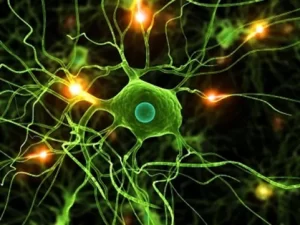- Excessive anxiety that interferes with day to day living and work

- Prolonged feelings of sadness
- Marked personality change
- Inability to cope with problems and daily activities
- Strange ideas or delusions
- Marked changes in eating or sleeping patterns
- Thinking or talking about suicide
- Extreme highs and lows
- Excessive anger or hostility
Irrational fears
 I will make my recommendations and suggest treatment according to what I feel would be best for you, but ultimately you are going to do what you decide is best for you. With regard to medication, it can be helpful. Sometimes, it helps a lot, and it can relieve symptoms such as depression or anxiety. So it depends on how you look at it, but if something is improving the quality of your life, it seems that it would make sense to go for it.
I will make my recommendations and suggest treatment according to what I feel would be best for you, but ultimately you are going to do what you decide is best for you. With regard to medication, it can be helpful. Sometimes, it helps a lot, and it can relieve symptoms such as depression or anxiety. So it depends on how you look at it, but if something is improving the quality of your life, it seems that it would make sense to go for it.
That being said, I do shy away from prescribing narcotic medications that are potentially addictive, such as benzodiazepines or stimulants. So you don’t have to worry about that. However, when it is indicated that non-addictive antidepressants can help, you can think of medication as a tool of empowerment, rather than something you are dependent on.
Therapy can also be extremely empowering. Once a therapy gets going, some people enjoy being able to understand things about the world, themselves, and their perceptions, especially as their lives start to improve. Others may find that they have worked through their specific issues and are ready to move on. Really, it’s always up to you!
If you need help right away, and I am not available, you should seek treatment from a hospital emergency room, especially in the case when your life or the life of someone else is in danger. The North Texas Suicide Crisis Hotline 24/7 at 214-828-1000 or you can text “CONNECT” to 741741. The National Suicide and Crisis Lifeline number is 988. It is available 24 hours in Spanish and English.
 All psychiatrists have, therefore, graduated from medical school and have attained their MD before taking additional training (usually three years or more) in the specialty of psychiatry. Because of their medical training, psychiatrists can also prescribe medication (if needed).
All psychiatrists have, therefore, graduated from medical school and have attained their MD before taking additional training (usually three years or more) in the specialty of psychiatry. Because of their medical training, psychiatrists can also prescribe medication (if needed).
On the other hand, psychologists have obtained the Doctor of Philosophy or PhD degree from a university and have not received the medical training that a psychiatrist has. Psychologists cannot prescribe medicinesAll psychiatrists have, therefore, graduated from medical school and have attained their MD before taking additional training (usually three years or more) in the specialty of psychiatry. Because of their medical training, psychiatrists can also prescribe medication (if needed).
On the other hand, psychologists have obtained the Doctor of Philosophy or PhD degree from a university and have not received the medical training that a psychiatrist has. Psychologists cannot prescribe medicines.
If I feel, for whatever reason, that I can’t help you the way you need to be helped, I will always provide you with referrals to someone who possibly can.
If you would like to use your private insurance company, you may still be able to. However, that would mean that I am an out-of-network provider for your insurance company. On your request, I will supply you with statements for your treatment. You can then submit them to your insurance company (usually with an accompanying form from them). They will possibly reimburse you according to your benefits. Now, it is best to check first with your insurance company to see if they provice mental health benefits and how comprehensive they are. Unfortunately, many plans do not have mental health benefits, or only offer limited coverage. With regard to government plans, I am not a Medicaid or Medicare provider.
All payment, unless otherwise negotiated, is due at the time of service, and payment is in the form of credit/debit.
 Neurotransmitters then pass on the amplified brain signals to neurons and various other cells located in the brain.
Neurotransmitters then pass on the amplified brain signals to neurons and various other cells located in the brain.
Sometimes high concentrations or an excess of neurotransmitters in the brain can cause mental illness. It is thought that by using medications, this can bring these chemical messengers back into balance. Medications for chemical imbalance in the brain include anti-depressants, anti-anxiety medications, mood-stabilizing medicines and antipsychotic medicines.
